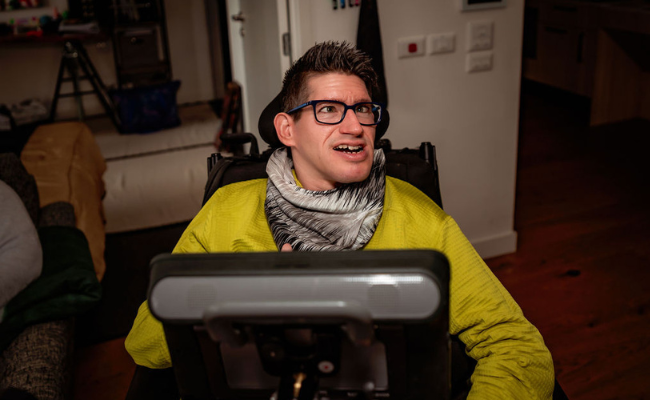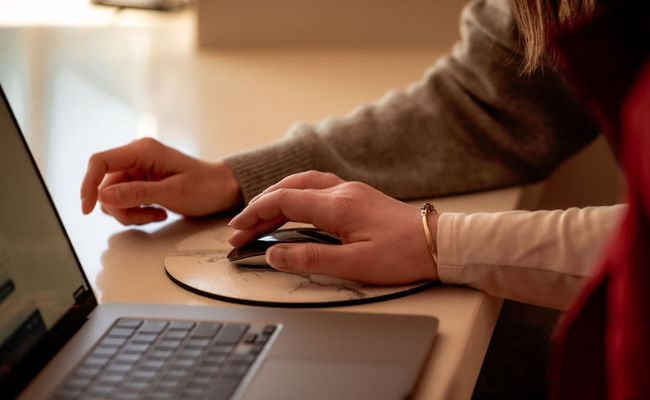Better is possible with the NDIS
When I was 11 years old I was diagnosed with a degenerative condition. My parents were told there were no treatments available and an optimistic life expectancy was 20 years of age.
Last year, I exceeded those early expectations by celebrating my 30th birthday.
It turned out that the doctor who gave me this bleak prognosis, didn’t actually know much about my neurological condition.
With no medical advice being offered, my family and friends really stepped up to help me navigate life with a disability. Finding out about accessibility issues in a wheelchair, and including me when I felt so isolated.
As my condition and my needs progressed, I lost so many abilities. I thought it would stop when I couldn’t walk anymore, but then I discovered that I needed help getting into bed.
When I couldn’t dress myself anymore unaided, my support system made me feel like I still mattered.
This was important, especially as I reached the stage of being classified as someone with a ‘high needs disability’. A term applied to someone needing help with most of their physical activities.
When you need help with daily activities, like showering, eating, and dressing, you often find yourself in undignified situations without privacy.
I am one of the lucky ones in Australia, because I avoided aged care homes in my 20’s. Somewhere that a few of my friends wound up.
Young people living in aged-care homes, without choice or independence in this country is pretty oppressive for a first world country.
In my opinion, the National Disability Insurance Scheme (NDIS) is one of the most progressive pieces of legislation passed into law by the Australian Government.
Getting young people with a disability out of aged-care homes, is just one of the benefits of the NDIS.
In addition to the everyday support funded by the NDIS, it has given people with a disability a way to make sure their voice is heard.
As someone with a high-needs disability in Australia, to have the financial resources available to help make my life easier, has been life changing.
The NDIS finished rolling out across Australia in 2018. It meant my choices regarding personal care, equipment needs and physical therapies recognised as fundamental to my needs were funded through the scheme.
NDIS works with the money received from tax payers, which is benefitting so many lives. To be born into a country that acknowledges people with a disability as having the same rights as anyone else makes me grateful.
Last year, I moved into my own apartment building in the city. This is something I never would have achieved if it weren’t for the NDIS. It’s given me the gift of independence, something I wasn’t sure I would ever achieve.
Having supports in place has given me the confidence to pursue an online job where I feel like I can make a difference. One that wouldn’t exist without the NDIS and wouldn’t go further without different perspectives.
I am fortunate that Australian society embraces differences and gives value to vulnerable voices. We are slowly becoming more diverse as our education about different minorities grow.
The NDIS is currently undergoing some serious revamping. These changes make the entire disability community nervous, as it’s funding we’ve needed for such a long time.
I can only hope that the new individual assessments proposed for the NDIS, won’t slow the progress it’s making.
Article published: May 2021
About the author
Jamie-Lee loves to challenge stereotypes surrounding disability; her lived experience of someone growing up disabled motivates her advocacy. Having studied journalism at uni, she uses her writing skills to her advantage. Shining a light on independent living options available to people with a disability is how we can create change in our society. She hopes to help other people with a disability along their journey, encouraging vulnerable people to find their voice. She believes that diversity will pave the way to equality for all.
The Housing Hub currently lists over 4,500 homes for people with disability to rent or buy, including individual apartments and group homes. Search for a home that is right for you today!
Or better still, create a Housing Seeker Profile and let the Housing Hub do the hard work for you. Sign up here!
Learn about housing for people with disability
If you want to find out what your housing options are, book in for one of our free workshops.
You will learn about many types of housing and you can ask us your questions.
Browse Resources

Housing Seeker Profile
Creating a Housing Seeker Profile is a simple process which involves telling us what you are looking for and what is important to you.

Housing Roadmap
The Housing Hub has worked alongside people with disability to map out the stages of a housing journey and the information you need to know about when moving through each step.

Living More Independently
The Housing Hub has teamed up with Mable to create a three-part series about living more independently.


